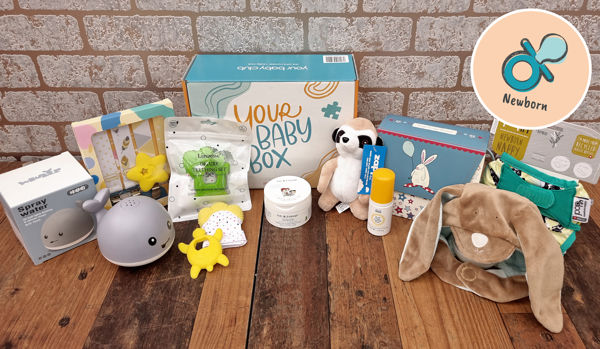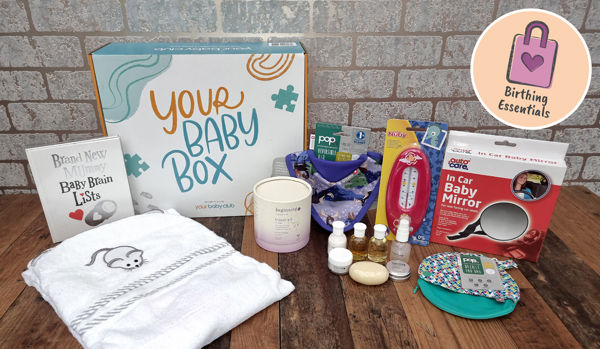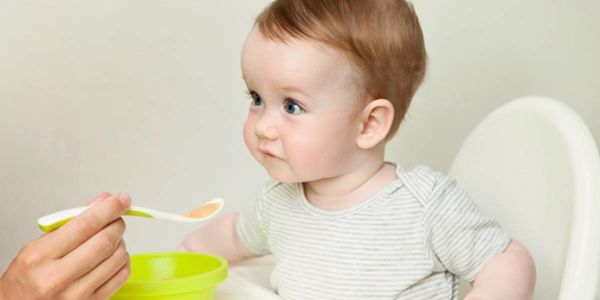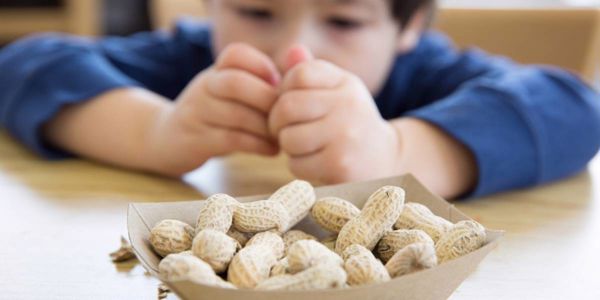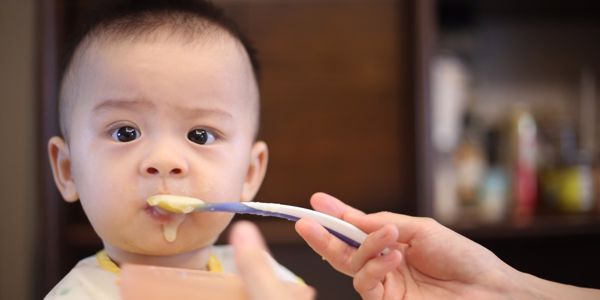Eczema can be a frightening diagnosis when it begins to take over the skin of our little ones. For anyone who is worried about their child’s skin changing, I have written this article to try and help people by being informative, and give a mother’s insight into what it was like to deal with.
I was distraught when my son was only a few weeks old, he began breaking out in patches of eczema, some of which was dry and some of which was red and sore. He would often try and claw with his tiny fingers and nails at his face and body when I removed his clothing. It broke my heart that he was suffering like this, red and sore and uncomfortable. All of this began at only eight weeks of age and by the time he was sixteen weeks old he had eczema on more than sixty per cent of his body. It was mostly on his legs, arms and face and varied in size. Seeing it spreading over his beautiful little face broke my heart because I was powerless to stop it at that time.
Eczema is an unknown condition and it takes trial and error to get it under control. The worst part of the eczema was on the skin of my son’s face; his little round cheeks, forehead and chin were bright red and sore for many weeks when the eczema first flared up. Even leaning against me in order to breastfeed would cause his soreness to worsen and I often felt terrible about not being able to do much for him. But actually, my breastfeeding acted as soothing for him, it’s not only a pain relief for a nursing baby like him, but the act of feeding itself soothed and comforted him as well. I did dab breastmilk on to his skin at times to aid with it being sore and it seemed to help.
We began by seeing our GP about it when it became difficult to manage. My son was already under investigation for other conditions at this time due to a multitude of ongoing symptoms, eczema being just one of them, and we were passed on to a paediatrician at the local hospital. They believed there was a link between his skin problem and the other issues. I began to make a symptom diary to help them determine if this was the case.
Shortly after all of this began my son was diagnosed with potential food allergies, and so we began the slippery slope into regular paediatric visits and check-ups. We were prescribed a great number of creams to try and get his skin under control. And slowly but surely his skin eventually began to improve. The redness lessened and we were left with different tones on his skin which was now healing, and a constant dryness that required multiple creams and emollients in order to keep on top of it. Along with changes to my diet (because I was and still am exclusively breastfeeding) we had to analyse everything in our household and what I was consuming too.
As his mother and main caregiver, I was advised to use a sensitive deodorant, I had to stop wearing perfume and we could only use baby sensitive and non-biological washing powders to wash clothing and bedding from now on. My diet changed to eliminate all of the suspected foods my son was allergic to and we waited to see what effect all of this would have. The Doctor advised us it could be a month before we would see any results. Over the next few weeks, the eczema became less sore and we could finally see the skin repairing. It was such a relief I cannot describe how it made me feel when my son wasn’t reaching to scratch all of the time.
My son was also prescribed a special liquid to go into his bathwater to help moisture stay in his skin. It is also important not to over bathe skin that has eczema and make sure the water is not too hot as well, because these things dry the skin out more.
After about three months of constant vigilance and a strict diet and regime my son finally stopped wearing mittens and we were able to enjoy doing more things together. He finally started to enjoy tummy time because his skin was not too sore to lie upon. He held things in his hands and I was able to kiss his beautiful face without worrying I was affecting his skin.
For any parent facing this type of thing with a baby or a child, it can be so daunting. When you can figure out what works for your child it’s a total game-changer, and they can finally start to enjoy normal things that other children do. For example, my son has still not been in a swimming pool, his skin was far too sore when he was younger and the chlorine would have hurt him, and then just as we get on top of his issues the Pandemic hit, so I have been waiting for what seems like ages, to be able to do things like this with him. Hopefully one day soon!
My son underwent his allergy tests at twelve months of age and then regular retesting every few months. We still avoid everything that came up originally in his allergy test due to his intolerances. This affects his skin and his body in other ways. The doctors think the main reason for my son’s eczema is due to a dairy intolerance. Now I want to just talk a bit about our current routine and how we currently stay on top of his eczema now he is a little older.
Our Skin Routine Two Years On
My son is now a 30-month-old toddler and his eczema is contained to just ten per cent of his skin. This is thanks to a good diet, breastfeeding and drinking plenty of water, avoiding things that cause his dry skin and also keeping on top of his diet so that he avoids what he is allergic to.
My son’s eczema is under control at the moment, so it’s not sore. His routine includes fully moisturising his skin a minimum of four times every twenty-four hours. Prescribed cream is applied all over his skin, focussing on his creases and where he has any dry patches. He has a bath every two to three days so as not to dry the skin out, and we only use products that are GP prescribed along with a Child’s Farm Shampoo.
Due to my son's food allergies, he has a strict diet and I do encourage him to drink a lot of water to stay hydrated. We eat at least five fruit and vegetable portions every day too. It is important to look after your skin and what you put into your body has a huge impact on it.
Looking back at how bad it was when he was little, I am so grateful that my son’s skin is now under control and it only bothers him a minimal amount. It is also much easier to manage during the summer months while you don’t have to layer up, so we are on a strict regimen during these cold winter months. But it is all necessary and worth it in order to keep the eczema at bay.
I would like to share some information on the medical condition that is Eczema.
Eczema – What is it and what causes it?
Atopic Eczema can also be known as Dermatitis, and it is the most common form of the dry skin condition of Eczema. Usually, the skin becomes dry, sore, and itchy. In children, it normally develops before a baby turns one. It is known as a Chronic Condition (which means long term) however some children do grow out of it when they get older, or it becomes so easy to manage that they barely notice it affecting them.
Symptoms of Eczema include patches of skin that become dry and itchy; it can also make skin red or purple and sore. Inflamed skin is usually red on pale skin tones and purple on darker skin tones. It can affect small areas of people’s skin or it can affect the majority of it, it can vary and be different for individual people. Flare-ups in children are common and can be linked to their diet, an allergic reaction or a change in season.
If your baby has a patch of their skin that alters in colour or it becomes dry or sore very quickly then it is a good idea to seek a medical opinion from your GP. Watch your baby’s skin daily and keep it moisturised, especially if there is a history of Eczema in your family. Make sure that you dry the skin carefully after a bath, including all of their little creases such as elbows, under the arms, behind the knees and the groin and also in any folds in the neck.
The exact reasons behind why eczema occurs are not certain, however, it is linked to other things like Asthma, Hay Fever and Food Allergies. So if a parent of a baby has one or more of these conditions then eczema is more likely to occur in their child. Allergy tests are usually required to help identify a food allergy or intolerance which could be triggering the skin symptoms. Most experts will ask you to keep a food diary and symptom diary so that they can pinpoint triggers which may include foods like dairy, which is a very common reason for eczema flare-ups if you are dairy intolerant.
Other things that can cause eczema flare-ups are allergic reactions to things such as soaps and washing detergents, weather can also be a factor for some people, and also stress. Babies have sensitive and freshly new skin after birth that is more prone to getting reactions. This is why it is important to use baby skin-friendly products, and washing and drying their skin gently and moisturising is also vital too.
Treating eczema is relatively simple and usually involves a mixture of creams, sometimes a steroid is used for very bad reactions, topical corticosteroids are used to reduce swelling and itching, and usually, an emollient is used to treat the dryness of the skin. Once the sore skin is healed and under control then an emollient is used frequently to keep it under control.
If you have any concerns about changes in your skin or your children’s then please contact your doctor and make an appointment for it to be looked at.



